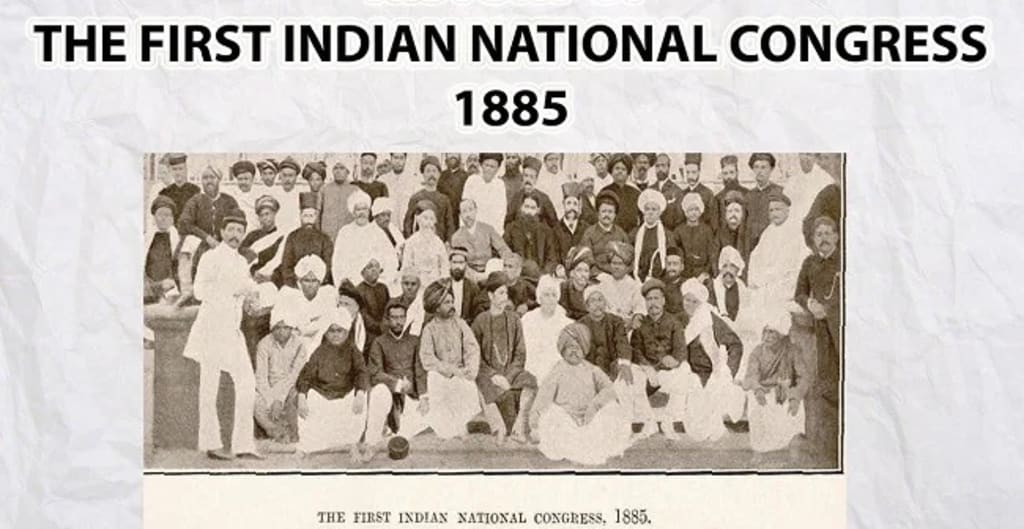
Ø Introduction
Ø Formation and early days
Ø After the War of Independence
Ø Failure of the Congress
Ø Conclusion
Introduction
The Indian National Congress, usually known as the Congress Party, is a major political force in the country. The Indian National Congress, which was founded in 1885, controlled the country's struggle for independence from Great Britain. Following independence, it went on to form the majority of India's administrations and frequently had a significant presence in several state governments.
Formation and early days
In addition, the India National Congress was founded in 1885 in Bombay when 72 representatives from throughout the nation gathered. Dadabhai Naoroji, Surendranath Banerjee, Badruddin Tayabji, Pherozeshah Mehta W. C. Bonnerjee, S. Ramaswami Mudaliar, S. Subramania Iyer, and Romesh Chunder Dutt were among the notable delegates. One of the original members of the Indian National Congress was the Englishman Allan Octavian Hume, a former employee of the British government. To create a forum for civil and political discourse among educated Indians, retired British Indian Civil Service (ICS) officer Allan Octavian Hume created the Indian National Congress (A Political Party of India (British India to Free India)). Following the Indian Rebellion of 1857, the British Empire took over the rule of India from the East India Company. With the help of English-educated Indians, who tended to be more familiar with and friendly toward British culture and political ideas, British-controlled India, also known as the British Raj or simply the Raj, tried to attempt and promote and legitimize its government of India. Ironically, the patronage of British authorities and the expanding class of Indians and Anglo-Indians educated in the English language-based British tradition were some of the ways the Congress expanded and persisted, especially during the 19th-century era of undeniable British domination or hegemony.
After the War of Independence
The Congress Party, led by Mohandas (Mahatma) Gandhi, started promoting nonviolent noncooperation in the 1920s and 1930s. The Rowlatt Acts, which were constitutional reforms passed in the early part of 1919, and Britain's implementation of them, as well as the great outrage among Indians following the killing of civilians in Amritsar (Punjab) that April, were the catalysts for the new shift in strategy. The All-India Congress Committee, established in 1929, encouraged tax evasion as a form of protest against British rule, and it was through this organisation that many of the subsequent acts of civil disobedience were carried out. Gandhi's Salt March in 1930 was noteworthy in that aspect. The Swaraj (Home Rule) Party, a faction of the Congress Party that supported maintaining the status quo, ran in the general elections of 1923 and 1937. It did particularly well in the latter year, taking 7 out of 11 provinces.
Failure of the Congress
It is also true that Congress was unable to convince Jinnah to give up his desire for independence or for the British to stop supporting him in that endeavour. The Quit India Movement influenced the increasing divergence between the objectives of Congress and those of the British. The Stafford Cripps mission's recommendations, which supported the concept of partition, were rejected by Congress in 1942. The concurrent development of extremist beliefs and forces on both sides of the political spectrum and the collapse of the talks between Jinnah and Congress contributed to the consequences of this failure on the ground even before Partition. Congress opposed the idea of nations being divided based on religious identities until 1946.






Comments
There are no comments for this story
Be the first to respond and start the conversation.